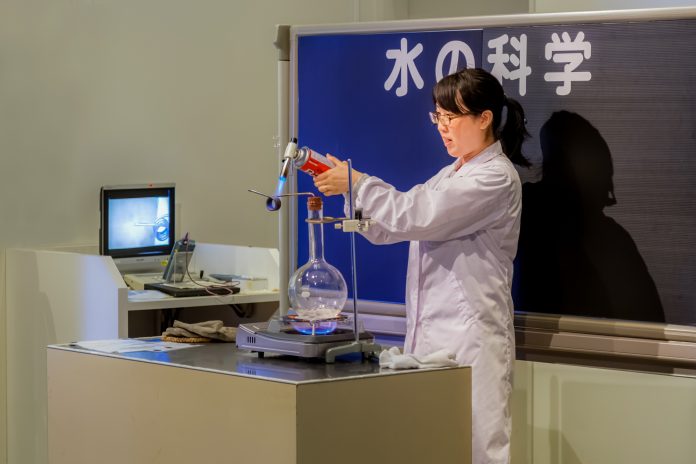The Japan Society for the Promotion of Science (JSPS) voices that, to effectively develop exciting new frontiers of science, they must first create supportive environments for young researchers to thrive
Scientific research driven by researchers’ own free ideas is the catalyst that generates new knowledge and the wellspring of innovation,” states President Satomi Susumu of the Japan Society for the Promotion of Science (JSPS), in a message on the societies website. It is therefore the responsibility of the society itself, to allow researchers to independently innovate and challenge themselves.
Founded in 1932, the JSPS still today retains its original overarching mission: To advance science and generate knowledge. To do this, JSPS (whose operation is supported in large part by annual subsidies from the Japanese Government), funds scientific research, fosters the independence of diverse young researchers, promotes international scientific cooperation and exchange, and supports the reform and globalisation of universities.
An example of this is their series of research fellowships for young scientists, which offer young researchers an opportunity to focus on a freely chosen research topic based on their own innovative ideas. Ultimately, the fellowship program works to foster and secure excellent researchers. This program demonstrates the importance of scientific research that is carried out based on the free ideas of the researchers themselves, as this is where innovation lies. “Through its Research Fellowships, JSPS provides excellent young researchers opportunities to concentrate on their work and chances to hone their skills via international experience,” states the Society’s President Satomi Susumu.
Constantly supporting their researchers in many ways, President Susumu recognises the urgent need to create environments in which young researchers can “apply themselves to advancing challenging research.” Without support to create a stable and sustainable environment to surround themselves in, conducting research will not be as effective.
Gender equality
It is stated on the JSPS website that “to advance science, it is important that researcher diversity is to be secured in ways that allows each researcher to exercise their potential irrespective of age, gender, research field, or affiliated organisation.” Promoting gender equality in JSPS programmes has been a 2020 priority and will continue into 2021 and beyond. September 2020 marked the updating of the “Basic Guidelines for Gender Equality in JSPS Programs” which was initially established on 30 March 2020 and will carry through to 31 March 2023.
Currently, in Japan, there is a lower percentage of female researchers compared to other major countries, and the higher the class of positions in Japanese universities the fewer there are women who hold them. Therefore, the following measures are being taken:
- Promoting the establishment of an environment in which researchers can advance their activities irrespective of gender.
- Expanding female researcher participation in JSPS’s decision-making process (including setting a goal of achieving approximately 30% female participation in JSPS committees that decide operational and program policies.)
- Gathering and disseminating information on gender equal participation and raising awareness among the society.
HOPE Meetings Collaboration is also a large part of the JSPS, as they must not neglect their global initiatives. To advance science and technology within the Asia-Pacific and Africa region, it is necessary to foster talented researchers who have “wide perspectives that transcend individual disciplines and lofty values derived from the region’s inherent cultures.”
To support and enhance such researchers, HOPE Meetings have been being organised by the JSPS since 2008. Its title, “HOPE”, signifies the promise held for young scientists and optimism for a bright science and technology future in both Japan and internationally. These meetings give opportunities for excellent doctoral students and young researchers to engage in interdisciplinary discussions with Nobel laureates and other distinguished scientists. “Their programs include dialogue with distinguished scientists pioneering the frontiers of knowledge; exchanges among the participants themselves, who live under the same roof for one week; and cultural lectures and activities,” it states on their website.
It is clear that JSPS are not only investing in research but also the researchers themselves. This is a priority, and the society sees the value of supporting research in humanities, social sciences, and natural sciences: stating that “pioneering research underpins building a bountiful society.” Without fully supported and healthy researchers to create, innovate, and challenge, development and excellence could dwindle.











